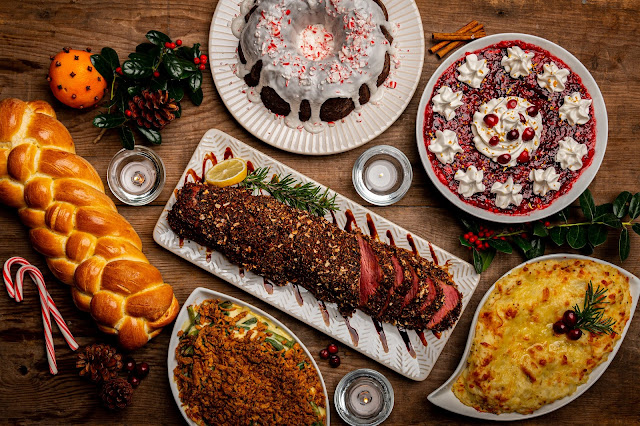15 Things To Do Before You Try To Lose Weight
Did you step on a scale this morning and panic?
I did. The month of December undid most of what I accomplished in October and November.
However, I've been doing some research, and I think I have some smarter strategies for attempting to normalize my weight. I'll be sharing those over the next several posts, just in time for the new year.
I combed a lot of resources, but I'd like to mention how especially useful the Eat This, Not That website has been.
Before you go on any diet
1. Make a list of reasons.
Why do you want to lose weight? Seeing the benefits of your resolution on paper will help keep you motivated. Write your reasons on several sticky notes, and post them on the refrigerator, the bathroom mirror, your closet door.
2. Keep track of everything you eat.
Do this for one week before you make any changes. Include all of it: the few bites of your husband's dessert, the mac and cheese your kid left on his plate, every little bit. You might not realize how much you're eating until you see it written down.
3. Don't diet.
We've all tried every fad and gimmick without long-term success. Diets don't work! And if you feel deprived, you'll never make it past a few weeks. Learn to appreciate food as delicious fuel, and slowly replace processed food that cannot properly energize the body with real food that can. After a while this will become natural, and will cease to be a daily struggle.
4. Tell at least one other person what you're doing.
Sharing your resolution will give you motivation out of the sheer embarrassment of having to admit you gave up or failed. And receiving encouragement from others when you succeed is a great boost!
5. Ask for help.
Do you have a friend or family member who has successfully lost weight and kept it off? Someone who has lowered his cholesterol or controlled blood sugar without drugs? Reach out to that person. People really do like to help others.
6. Clean house.
Get rid of processed, sugary, fatty foods, and restock your pantry and fridge with real, whole, healthy foods. If you have to have snacks for other family members, store them in one cupboard which you can avoid opening.
7. Plan ahead.
Planning keep you from mindlessly falling into old habits. Plan meals for the week and make a list for grocery shopping. Do some meal prep in your down time; for example chop veggies, cook a double batch of whole grains, fill a bowl with washed fresh fruits, or brown a pound of ground turkey for 5 Ingredient Chili.
8. Decide how you'll handle events.
What will you do about birthdays, anniversaries, weddings, holidays? Will you allow yourself some "cheat foods?" What kind and how much? Set a limit for yourself, and get a commitment from your significant other to be especially supportive during those times.
9. Don't beat yourself up.
Let the past stay there. Your old habits are going to die gradually as you replace them with new ones, but that will be harder if you continue to mentally shame yourself.
10. Don't let yourself give up.
The occasional slip doesn't mean all is lost. You didn't gain the weight overnight, and you won't change your habits and lose it overnight either. But don't just throw up your hands and order pepperoni pizza! Get right back into your healthier habits. Master the habit of starting again - it's a key to success.
Related article: One Simple Secret to Help You Live a Better Life
11. Change your coping mechanisms.
Chances are that some of your long-term eating habits are ways that you cope with stress, loneliness, boredom, or other negative feelings. So when those feelings come up, you have to consciously choose to deal with them in a new way: talk to someone, take a walk, sit in the sun, meditate, write in your gratitude journal, make and drink a cup of tea.
12. Plan for a "cheat meal" once a week.
You never need to feel deprived, since no foods are permanently off limits. Consequently, you'll crave them less. But remember, this is a "cheat meal," not a "cheat day that turns into a cheat week." Eat one serving of the food you've missed the most.
13. Plan to reward yourself.
When you reach a milestone, treat yourself to a massage, a facial, a new piece of clothing...something meaningful that doesn't involve food.
14. Take a daily 2,000 IU vitamin D supplement.
Also plan to spend at least 10 to 15 minutes in the sun, if possible. Make sure your hands and face are exposed to get maximum health benefits. New studies show that obesity, especially abdominal fat, is linked to vitamin D deficiency.
15. Keep track of good things that happen.
Start the new year with an empty jar. Every time you lose five more pounds, or resist an unhealthy food, or notice you have more energy or clearer skin, or feel celebratory without needing a drink or treat food, write it on a piece of paper and put it in the jar. Next New Year's Eve, empty the jar to see all the awesome stuff you accomplished.
Updated January 2023






Comments
Post a Comment